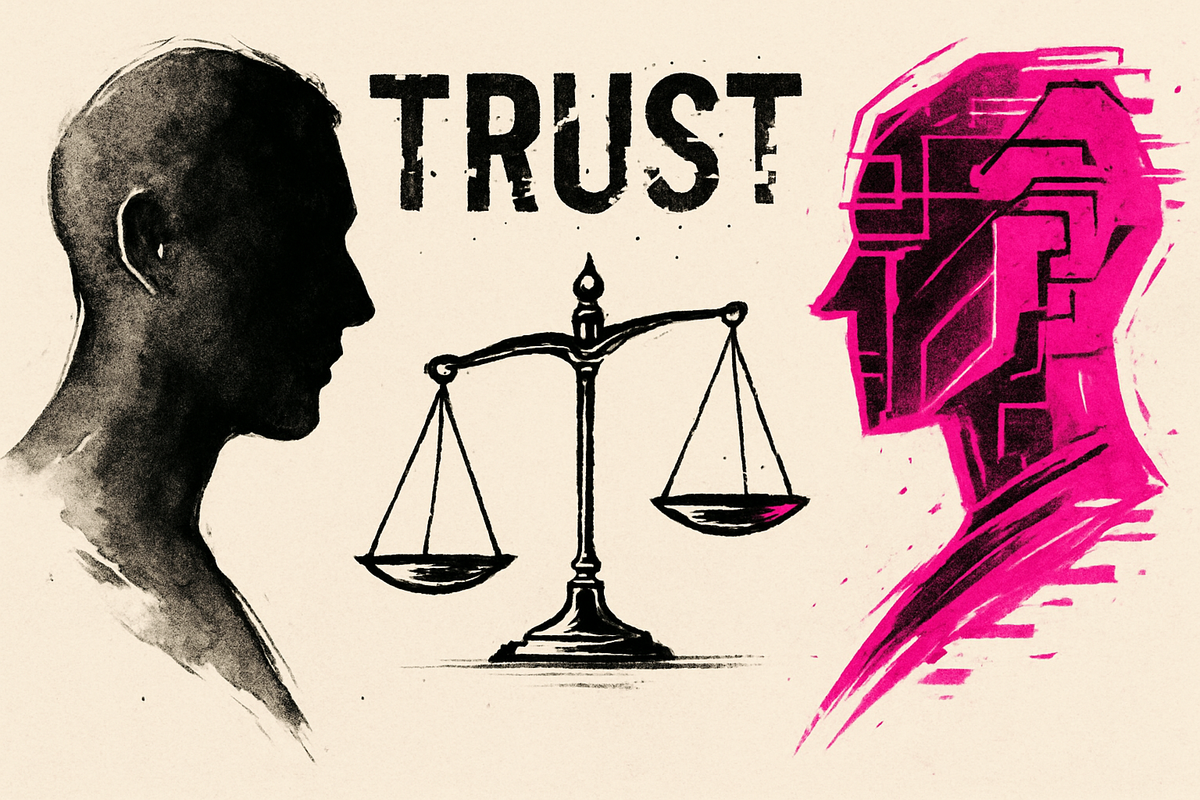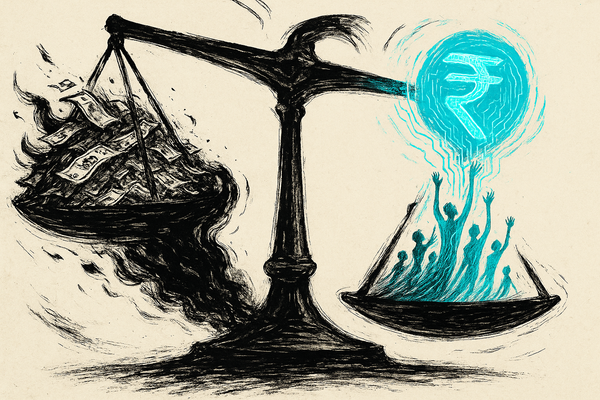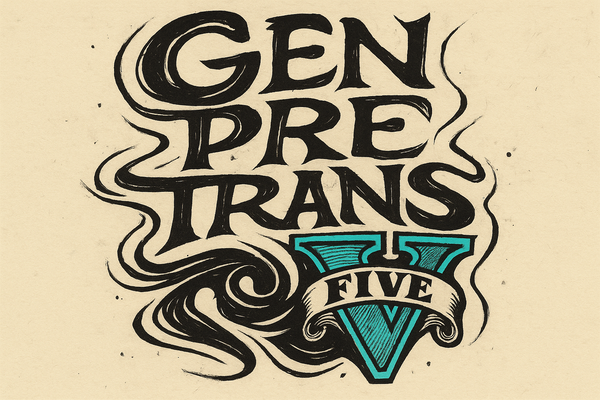ImaginEconomy Daily #11
AI still needs committees to verify answers. WPP hires Microsoft exec as CEO. Anthropic gives away education. Unilever scales influencers with AI. Google halves costs. Senate votes 99-1: no AI rules. When benchmarks become beauty contests, who's really winning?

ImaginEconomy 🧠 ✨ 💰 : Brands, Strategy, Story and Design in the Age of AI
xAI's Grok 4 Claims the Benchmark Crown
xAI released Grok 4 through API and premium subscription to great benchmark results, claiming superiority over GPT-4, Claude, and Gemini across reasoning, math, and coding benchmarks. Grok 4 Heavy runs multiple agents in parallel, cross-checking answers before responding. At $3 per million input tokens and $15 per million output, it's priced for enterprise vanity, but cost will likely come down. The model achieved a groundbreaking 15.9% score on ARC-AGI-2, nearly doubling the previous commercial state-of-the-art benchmark, and scored 25.4% on Humanity's Last Exam without tools.
ImaginEconomy Impact: The benchmark industrial complex reaches peak PR effect with every new model release. But while labs celebrate fractional improvements on synthetic tests, actual users struggle with basic everyday reliability. Grok 4's multi-agent approach reveals a dirty secret: models are still so unreliable they need committees to fact-check themselves. For agencies drowning in AI options, remember that benchmarks measure what's easy to measure, not necessarily what matters. The model that with the highest MMLU score won't win business. It'll be the workflow that understands needs and delivers to them.
Source: TechCrunch on xAI Grok 4 launch
WPP Bets on Tech DNA with Microsoft Executive as CEO
WPP appointed Cindy Rose, former Microsoft UK CEO and current chief operating officer of Microsoft's global enterprise business, to lead the world's largest advertising holding company amid AI disruption and declining revenues. Her tech background signals WPP's recognition that creative genius alone won't navigate the algorithmic future. Rose will take over from Mark Read effective September 1, following a day after WPP shares hit a 16-year low after the company cut its full-year outlook.
ImaginEconomy Impact: The Mad Men are finally admitting defeat. After decades of pretending technology was just another tool, WPP's board has capitulated to reality: software is eating advertising, and only someone who speaks its language can negotiate the terms of surrender. Rose inherits an empire built on human persuasion that must now integrate with machines that know our desires before we do. The tragedy isn't that agencies need tech leadership. It's that they waited until the patient was terminal to call the surgeon.
Source: Fortune Europe on WPP CEO appointment
Anthropic Democratizes AI Education
Anthropic launched a free educational platform featuring hands-on labs for Claude API, Model Context Protocol (MCP), and Claude Code workflows. The courses promise to transform novices into Claude whisperers through practical exercises rather than theory. The GitHub repository contains five comprehensive courses including API fundamentals, prompt engineering interactive tutorials, real-world prompting techniques, prompt evaluations, and tool use implementation.
ImaginEconomy Impact: While competitors hoard knowledge behind paywalls, Anthropic plays the long game of ecosystem dominance. Free education isn't charity; it's customer acquisition at scale. Every developer who learns Claude's quirks becomes a lifetime advocate, every MCP integration creates switching costs, every workflow becomes organizational muscle memory. Agencies debating which AI to adopt are asking the wrong question. The winner won't be the best model but the one with the most disciples. Anthropic just opened a seminary.
Source: Anthropic's educational courses on GitHub
Unilever's Digital Product Factory Scales Influencer Content
Unilever deployed Nvidia's Omniverse and generative AI to create digital twins of products, generating 3.5 billion social impressions and attracting 52% new customers with its Dove-Crumbl Cookies collaboration. The company took over 100 discrete pieces of influencer content from real creators, added product versioning, and used generative AI to remix them into different sizes, formats and lengths, tailoring content to different audiences across social platforms. The company's success has so far been with real humans, but its currently testing also AI-generated influencers.
ImaginEconomy Impact: The creator economy's fundamental assumption—scarcity of authentic personality—just evolved into something more nuanced. Unilever hasn't yet replaced influencers, but they have turned them into scalable assets. One piece of human creativity becomes a thousand variations, each perfectly formatted for its platform and audience. This hybrid approach reveals the our immediate future: AI not necessarily replacing humans, but making humans infinitely scalable. The influencers celebrating this technology should read the fine print. Today, AI amplifies your content. Tomorrow, it might not need you to create it. The smart creators are negotiating not just payment for posts, but rights to their digital likeness before the replication engines learn to work without them.
Source: TipRanks on Unilever AI growth engine
Google Makes Enterprise AI Affordable with Batch Processing
Google introduced Batch Mode for Gemini 2.5, cutting costs by 50% for asynchronous processing. Bulk content generation, model evaluations, and large-scale analysis suddenly fit startup budgets. The new mode allows submission of jobs up to 2GB JSONL files with results delivered within 24 hours, all at half the standard API price. Higher rate limits and simplified operations eliminate the need for complex client-side queuing or retry logic.
ImaginEconomy Impact: Price elasticity meets artificial intelligence. Google understands what OpenAI doesn't: market dominance comes from commoditization, not premiums. By halving costs, they're not competing on price; they're changing the physics of what's possible. Suddenly, that ambitious content localization project makes sense. That massive customer data analysis becomes feasible. The experimental budget now stretches to production scale. Google isn't selling just cheaper tokens; they're selling permission to think bigger. Every agency calculating ROI on AI initiatives just watched their breakeven point leap forward.
Source: Google Developers Blog on Batch Mode
Perplexity's Browser Makes Chrome Look Amish
Perplexity unveiled Comet, an AI-native browser with built-in assistant that automates meetings, emails, and browsing tasks. Beyond search, it actively completes workflows while you watch. Comet Assistant lives in a sidebar and can see and understand the content of any active webpage, allowing users to ask questions without switching tabs or copy-pasting information. The browser is currently available to Perplexity Max subscribers at $200 per month.
ImaginEconomy Impact: The browser wars never ended; they just went dormant. Perplexity's Comet resurrects the battlefield with a simple insight: why should users walk when AI can teleport? This isn't an incremental feature but architectural revolution. Every click you don't make, every form your AI fills, every meeting it summarizes rewires your relationship with the whole internet. Chrome is optimized for speed; Comet optimizes for outcomes. Brands and agencies clinging to traditional web workflows are about to discover what Blockbuster felt when Netflix arrived. Adopting AI is already a given. Now also using browsers and browsing workflows that maximize your results are required.
Source: TechCrunch on Perplexity Comet launch
Higgsfield's Avatar Generator Solves Personal Brand Scale
Higgsfield launched Soul ID, generating personalized avatars that maintain consistency across contexts. High-quality lookbooks, infinite variations, one authentic source. By uploading more than 10 personal photos, users can train an AI character that replicates their appearance, demeanor, and dynamics across different angles, expressions, and lighting conditions. Premium plans start at $9/month, providing 150 generation credits and watermark-free output.
ImaginEconomy Impact: Personal branding confronts its industrial revolution. Higgsfield strips away the last pretense that digital presence requires presence. When anyone can spawn photorealistic variants across every platform, personal brand becomes pure strategy. The arbitrage opportunity is temporary but massive: early adopters will flood channels while audiences still assume human origin. But the endgame is darker. When everyone has perfect avatars, authenticity becomes not showing your best self. The premium future might be deliberate imperfection—proof you're confident enough to appear human.
Source: AIBase on Higgsfield Soul ID
Bottom Line: The Benchmark Delusion
Today's stories paint a portrait of an industry intoxicated by its own metrics. xAI celebrates benchmark supremacy while users need multi-agent systems just to trust the most basic outputs. WPP imports tech leadership to save a creative empire. Anthropic gives away education to buy loyalty. Unilever clones humans while Google slashes prices.
The companies that thrive won't be those with the best standard metrics but those who remember why we measure in the first place and remember we can come up with better measures and statistics when current ones fail.
In a world of infinite content, synthetic empathy, and benchmark olympics, the scarcest resource isn't intelligence—artificial or otherwise. It's wisdom and discernment. And those, fortunately for us, still remain stubbornly human.
ImaginEconomy Daily Newsletter is curated for brand, business and marketing strategists, creatives, and leaders navigating the intersection of technology and human experience.




